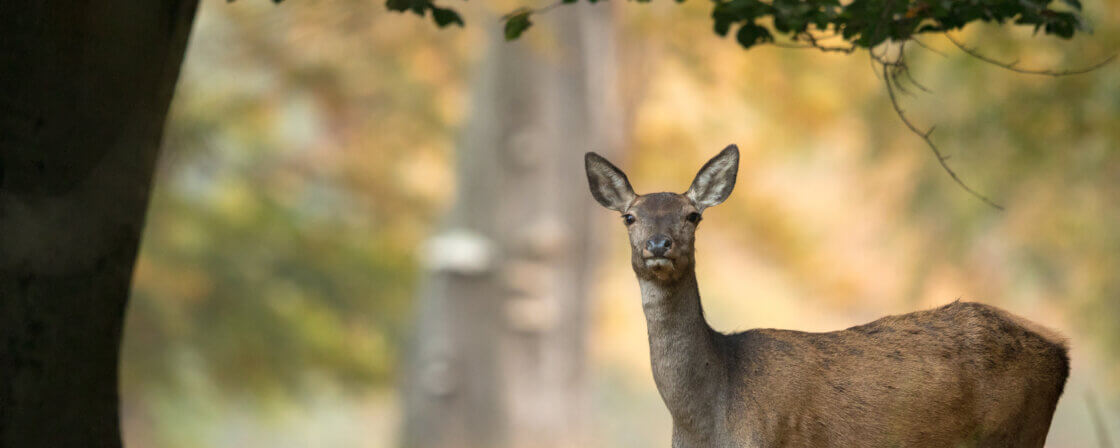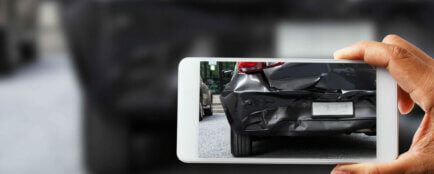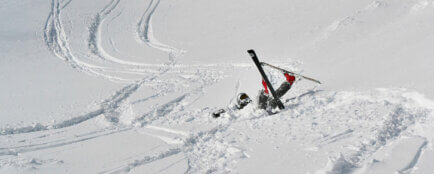A collision with wild animals is one of the most frequent road accidents in the Czech Republic, which can have not only financially but also legally unpleasant consequences. Thousands of such collisions occur on Czech roads every year, especially in spring and autumn when wildlife is most active. Collisions with deer, wild boar or rabbits are the most common, but even a smaller animal can cause significant damage to a vehicle. Many drivers find themselves in this situation for the first time and have no idea how to proceed and who is responsible for the damage. Yet the right response in the first minutes after an accident can determine whether the insurance company will accept the claim and whether the driver will be compensated at all.
The basic legislation on wildlife collisions is based on three key laws. The Road Traffic Act sets out the driver’s obligations in the event of an accident, including the duty to call the police. The Hunting Act defines the legal status of wild game and sets out the rules on how it can be handled. Finally, the Civil Code regulates general liability for damages and the conditions under which a claim for compensation may be made. Together, these provisions create the legal framework within which each case of conflict with wildlife is considered.
What to do after a collision with wildlife
If a collision with wildlife occurs, the driver should remain calm and, above all, take care for his own safety and the safety of other road users. Immediately after an accident, the vehicle must be stopped, warning lights switched on and a warning triangle placed. At night or in low visibility, it is advisable to wear a reflective vest and check that the occupants of the vehicle are not injured. The driver should then assess the situation and under no circumstances should he/she take or otherwise handle the game. Game is part of the wildlife and taking it away could qualify as poaching, which is a criminal offence.
The next step is to call the Police of the Czech Republic, who will document the incident, draw up a report and usually contact the relevant hunting association in whose hunting ground the game fell. Without a police report, it can be very difficult to make a subsequent claim for compensation, as insurance companies often require it as evidence.
It is also important to document the scene of the accident – photograph the damaged vehicle, the scene of the collision and the animal itself, if possible. Such documentation is crucial in resolving an insurance claim. The driver should also record the time and exact location of the incident, as these details help to verify the credibility of the report and can be crucial in proving the case to the insurance company.
Are you solving a similar problem?
Don't let the insurance company take your money
After a collision with wildlife, there is often confusion about liability and the amount of compensation. Insurance companies sometimes shorten or deny benefits, citing the driver’s alleged fault. But we know how to do it. Just send us a police report or communication with the insurance company and we’ll take care of the rest. We’ll get you compensation after a collision with wildlife.
I want legal help
- When you order, you know what you will get and how much it will cost.
- We handle everything online or in person at one of our 6 offices.
- We handle 8 out of 10 requests within 2 working days.
- We have specialists for every field of law.
Who is liable for damage after a collision with game
From a legal point of view, the question of liability for damage in the event of a collision with wildlife is quite specific. According to the Hunting Act, game is considered to be nobody’s property, i.e. res nullius. This means that it does not belong to any particular person or entity until it is hunted. For this reason, no one is usually directly liable for damage caused by wild game.
However, this does not mean that the driver is always left without the possibility of obtaining compensation. If the driver was not in breach of any duty, was travelling at a reasonable speed, was attentive and yet the collision occurred, he cannot be held at fault. On the other hand, if, for example, he failed to adjust his speed to the weather or light conditions and the accident could have been avoided, the insurance company could refuse to pay on the grounds of negligence.
Liability may also arise if the road manager has neglected his duties, for example if there have been long-standing collisions with wildlife on the section where the collision occurred and the road is not marked with a ‘Caution, wildlife’ sign. In such a situation, it would be possible to consider contributory fault on the part of the road manager.
Similarly, the operator of a fenced preserve or highway may be liable if an animal enters the roadway as a result of damaged or unmaintained fencing. Each case must therefore be considered on an individual basis and requires a legal analysis of the specific circumstances of the accident.
Tip for article
Tip: The accident report, often referred to as the accident report or euroform, is a key document when dealing with a claim. Do you know how to fill it in correctly?
How to get compensation
Your options for getting compensation depend mainly on the type of insurance you have. Compulsory third party insurance does not usually give rise to a claim for compensation because this insurance only covers damage caused by the driver to other persons, not to himself. Therefore, if you are involved in a collision with wildlife, the compulsory liability insurance will not help.
The solution is collision insurance, which normally covers damage caused by a collision with wildlife. However, each insurance company can set its own conditions. Some require the police to be called, others accept other means of proving the incident, such as photo documentation or witness testimony.
Drivers who do not have accident insurance can take advantage of collision insurance, which is often taken out in addition to compulsory insurance. This is an inexpensive and very practical option that will cover repairs to your vehicle after a collision with a wild animal.
If the insurance company refuses to pay or offers an unreasonably low amount, it is advisable to contact a lawyer. He or she can review the policy terms and conditions, check the correctness of the insurance company’s actions and, if necessary, seek compensation through the courts. It is not uncommon for an insurer to try to reduce the claim by referring to the driver’s alleged negligence or failure to comply with the reporting obligation, even if the breach of the rules did not objectively occur.
Tip for article
Tip: Running a red light, failing to stop at a stop sign, speeding or being banned – these are the most common traffic offences on our roads. Find out what the penalties are.
Summary
No one is usually directly responsible for an animal that runs into your path, because wildlife is not the property of any person. As long as the driver is not breaking the rules of the road and is acting prudently, they cannot be blamed and the damage can be dealt with through insurance. A claim for compensation cannot be made under compulsory liability insurance as this only covers damage caused to other persons. The solution is collision insurance, which usually covers collisions with wildlife, or collision insurance taken out in addition to compulsory insurance. After an accident, you must stop, secure the scene, call the police and take photo documentation. The police report is key evidence for the insurance company. Exceptionally, the road manager may also be liable if he or she neglected to mark the risky section with a “Caution, wildlife!” sign, or the operator of a fenced game preserve or highway if the animal escaped due to faulty security. Each case must therefore be assessed individually. If the insurance company refuses to pay or offers a low amount, a lawyer can be contacted to check the insurance company’s procedure and help recover full compensation.
Frequently Asked Questions
Who is liable for damage after a collision with wildlife?
Usually no one is directly responsible for wild game, because according to the Hunting Act it is not the property of any person. If the driver did not break the rules of the road and was driving reasonably, he or she is not at fault, and therefore compensation is handled through insurance – most often accident or collision insurance. Exceptions are cases where the road manager or the operator of a fenced game reserve contributed to the accident.
What should I do immediately after an encounter with game?
After a collision, it is necessary to stop the vehicle and secure the accident scene. Always call the police in the event of personal injury, significant damage, damage to property, fluid leakage or other obstruction to traffic. For other wildlife collisions, reporting to the police is recommended (the insurance company often requires it; the police will usually contact the game park user). Never handle or remove game – it could be considered poaching. It is advisable to take photographic documentation of the damaged vehicle and the accident site to serve as evidence for the insurance company.
What insurance can I get compensation from?
Compulsory liability insurance cannot provide compensation because it only covers damage caused to other persons. Compensation can be claimed from collision insurance, which usually also covers collision with wildlife, or from additional insurance for collision with wildlife taken out with the compulsory insurance. The insurance company usually requires a police report as proof of the incident.
What should I do if the insurance company refuses to pay?
If the insurance company refuses to pay or offers less than the actual damage, it makes sense to have the whole case checked by a lawyer. He or she can check that the insurance company has actually acted in accordance with the law and the terms of the contract. In many cases, the insurance company’s decision can be successfully challenged and full compensation can be sought.
Is it necessary to call the police even for minor damage?
Yes. The police must always be called, even if there is only minor damage. The accident report serves as evidence and without it the insurance company could refuse to pay. At the same time, the police will ensure that the relevant hunting association is informed of the collision, which is a legal obligation.




